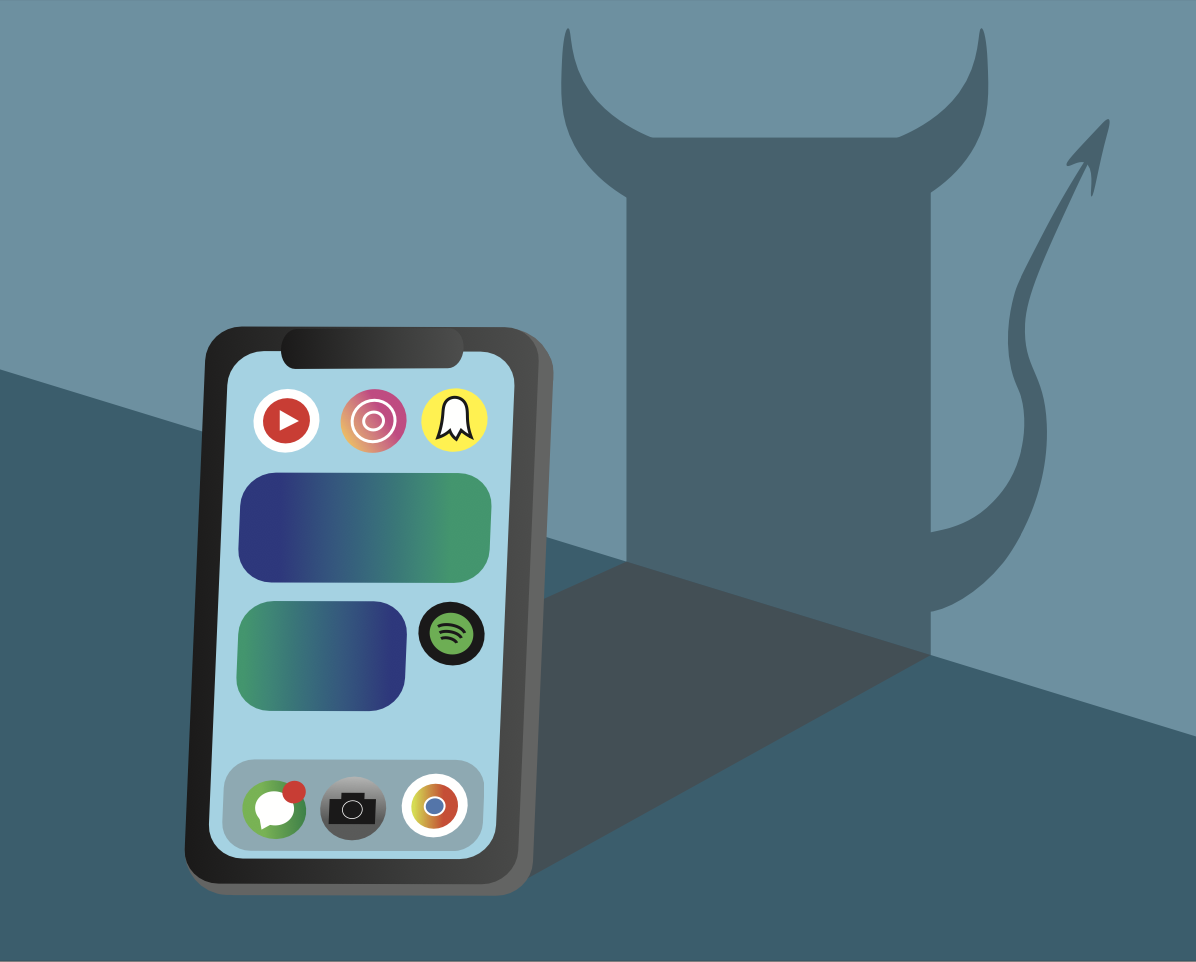Just over 80 USD 497 teachers have signed a petition to enact a new districtwide cell phone policy. Written in late May, the petition states that the current policy is “ineffective and nearly impossible to enforce” and proposes that student phones be stored in a designated area for the entirety of the school day.
Free State High School teacher David Reber was one of multiple district faculty members to advocate for this new policy over the summer. He referenced his experience at a phone-free concert as a practical example of how this policy could be enforced.
“In order to enter the venue, you had to put your phone in a container that was then locked by security staff. You kept your phone with you but could not access it. As you left, security staff unlocked the container,” Reber said. “Anything short of this will be woefully insufficient.”
Free State parent Justin Blumenstiel subsequently organized a parent petition that has gained over 100 signatories to show support for the teachers’ proposal. He vocalized parent concerns about cell phone usage at an August school board meeting, centering the message on teenagers’ mental health with an informational handout.
Blumenstiel’s goal in rallying parent support is to alleviate tension and incoherence between the district’s families and faculty.
“Parents are the ones whose children are in the schools, so I think we need to have a united front on these issues,” Blumenstiel said. “If there’s a general consensus amongst the teachers and the parents, I think then USD 497 will have to respond to that.”
Blumenstiel included various statistical analyses in his handout that connected the use of cellphones to a decline in teenagers’ mental health. He emphasized, however, that correlation does not equal causation, and that cases of experimental intervention would provide the most valuable data.
Blumenstiel specifically cited a study by the Norwegian Institute of Public Health, which concluded that female students from lower socio-economic backgrounds showed the greatest academic improvement as a result of a phone ban.
Blumenstiel explained that this, along with other potential benefits, could outweigh the inconvenience of communication loss.
“There’s that concern that people from disadvantaged backgrounds might have a more challenging way to coordinate and schedule things on a daily basis,” Blumenstiel said. “I think in the end, on balance, the impact will be greatest among students that are disadvantaged.”
In the classroom, Reber observed that unrestricted access to cell phones has been a major contributor to high levels of absenteeism and misconduct, especially among underprivileged students.
“In my experience, the harm done by cell phones disproportionately affects those students who are already at risk for a variety of other reasons,” Reber said. “Allowing students to have phones is therefore an issue of equity in access to educational opportunities.”
Aside from behavioral and academic performance, Blumenstiel and Reber agreed that a blanket phone policy would leave less room for disciplinary interaction between students and teachers. The district’s current policy allows for teacher discretion in terms of both classroom guidelines and confiscation, which Reber argued is an unfairly hefty responsibility.
“The district leaves teachers on the front line to deal with the problem,” Reber said. “It is incredibly demoralizing that my employer would put me in a position where I would be expected to do that.”
Senior Adelle Spiess was one of few in her freshman class to not be in possession of her own cell phone. While acknowledging the communication hindrance both during the school day and in extracurricular activities, Spiess said she could see the argument for a phone-free day.
“I can kind of detach myself from the last three years and say, ‘well, okay, I was able to function without having a phone during the school day,’” Spiess said. “At the same time, I much prefer having a phone now.”
Given that Spiess was able to operate effectively throughout the school day without a phone, she said that it was probably developmentally appropriate. However, she did not have any substantial concerns about student cell phone use in general.
“Obviously every teacher’s policy is different, but I think the majority of the time, not being allowed to be on it during class periods is not a problem,” Spiess said. “Access during passing periods and lunch, I think, is a completely fair game.”
But for Reber and Blumenstiel, it’s not just about classroom engagement. Both attributed observed declines in social skills to an increase in cell phone use. Reber compared the development to “watching kids shoot heroin,” and expressed that the pressure on teachers to combat such an epidemic has contributed to the district’s lack of teacher retention in recent years.
“I hope the students don’t think that the olds are doing this to punish them,” Blumenstiel said. “I would remind the students…to think about how your use, an individual’s use, is being shaped by multi-billion dollar companies who have commodified attention in such a way that maybe they don’t always have the best interest of the user in mind.





